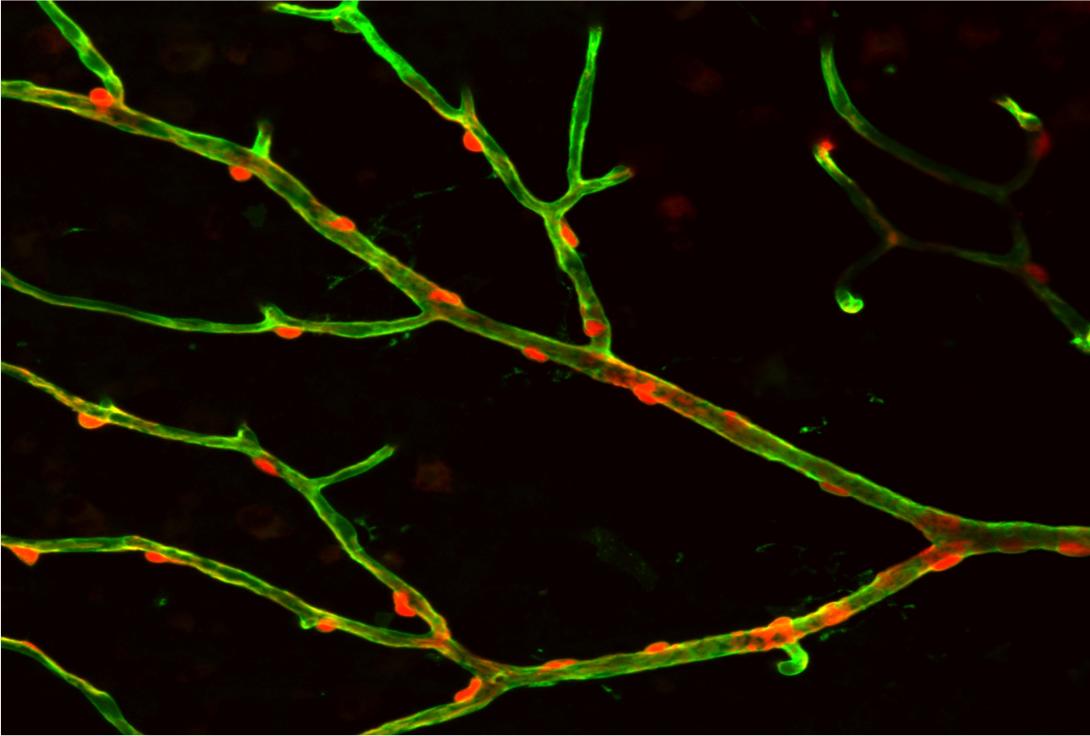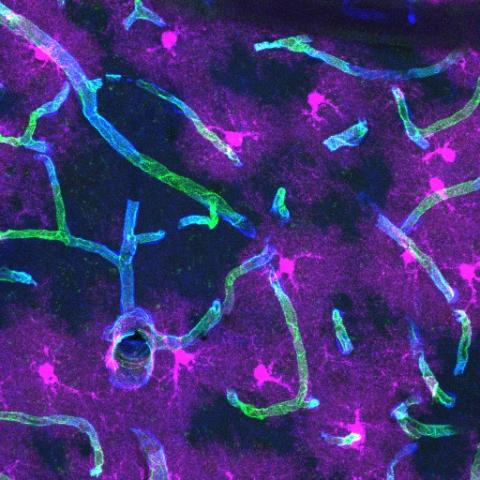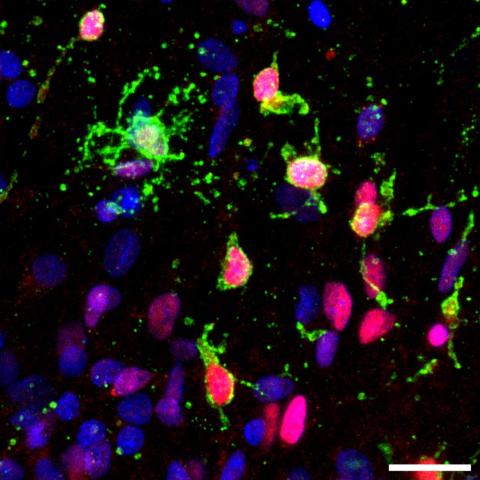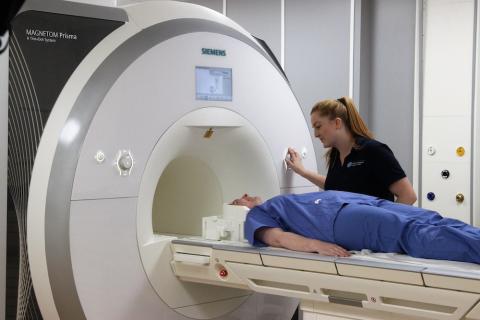Vascular dementia is the second most commonly diagnosed type of dementia (after Alzheimer’s disease), and includes a number of subtly different conditions that may be initiated by genetics, by low cerebral blood flow, or after stroke. The scientific focus of the Centre for Vascular Dementia Research (CVDR) is to define the initiating mechanisms for vascular dementia, identify biomarkers for disease state, devise potential interventions to prevent or reverse the causative mechanisms, and ultimately test whether those interventions work in animal models of disease and in humans.
This research involves carrying out experiments to study the role in vascular dementia of blood flow changes, loss of blood-brain barrier (BBB) function, changes in the physical properties of blood vessels, loss of nutrient supply to brain tissue, and downstream effects on neuronal and glial cell function, including on myelin integrity.
Current researchers within the CVDR include:
- David Attwell and Catherine Hall, studying changes of blood flow and nutrient supply to the brain;
- Axel Montagne and Mootaz Salman, studying BBB breakdown and how to prevent it;
- Blanca Díaz-Castro, investigating interactions between astrocytes and endothelial cells;
- Susanne van Veluw, researching amyloid deposition in blood vessels and its consequences;
- Rikesh Rajani studying the role of oligodendrocytes in vascular dementia; and
- Joanna Wardlaw developing therapies for vascular dementia by repurposing existing drugs.
Together, these programmes of work span fundamental research, through biomarker discovery to treatment development.

Credit: Attwell Lab.
Labs






